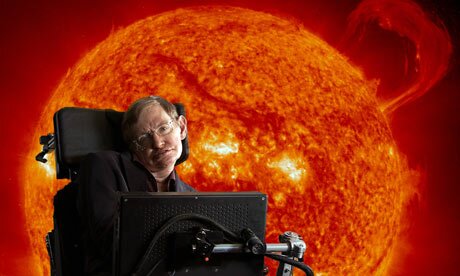“The significant problems we face cannot be solved at the same level of thinking we were at when we created them”—Albert Einstein
As we assess the current state of global affairs, it is easy to become disheartened. Problems that have plagued human society—poverty, hunger, disease, conflict, etc.—seem to grow more serious with each passing year. Yet, humans have always confronted seemingly insoluble problems. As Karl Popper argues, solving problems intellectually is a uniquely human endeavor. Most life forms solve problems with their biology, whereas humans solve problems with their brains. And it is through an iterative problem-solving process—which Popper describes as a process of conjecture and refutation—that humans have been able to super-adapt to an unprecedented variety of survival challenges. Yet, as Albert Einstein emphasized, any solution to a particular problem inevitably creates new problems. For example, the conveniences associated with life in the modern world have facilitated exponential population increases. In turn, exploding populations have introduced titanic stresses on the biosphere.
Further, Einstein points out that the problems humans create tend to exceed “the…level of thinking we were at when we created them.” Frustratingly, this means the reward for solving problems is often the invention of even more intractable problems. For example, Oppenheimer and the other Manhattan Project scientists solved the problem of how to win WWII by inventing weapons powerful enough to extinguish all life as we know it. As such, Einstein astutely identified a basic dissonance between problem-solvers and the problems that they create. It takes genius to split atoms, but it takes an even higher order of genius to split atoms safely.
Certainly, one could interpret Einstein’s comments pessimistically, i.e., humans will never be equal to the problems that they create. The most imaginative solutions to intractable problems will always generate difficulties of even greater magnitude, e.g., solving the 19th century problem of whale oil shortages by tapping into the earth’s vast petroleum reserves. It’s as if the seeds of humanity’s destruction are built into every stroke of genius that’s designed to forestall disaster. The better the idea, the more disastrous the unforeseen outcomes. Fortunately, it’s also possible to interpret Einstein’s admonition optimistically.
To begin with, it is essential to recognize that there will never be final solutions in any field of human endeavor. No matter what problems we may solve, the one thing we can be sure of is that even more mind-bending problems will rapidly ensue. At a glance, this assertion may seem to head in much the same direction as the pessimistic perspective outlined above: the day will inevitably arrive when humans are overwhelmed by insuperable problems that, like The Terminator, are, tragically and ironically, the unintended outcomes of their own brain children. The jury may be out on precisely what precipitated the demise of the Roman Empire, however, what’s certain is that, in the end, the Romans were simply no match for the problems that their empire created.
Gloomy as the above realities may be, problems should not be perceived solely as harbingers of doom. Instead, I believe that problems should be viewed as an essential form of agency- motivation. I maintain that a Agency emanates from a fundamental wellspring of intellectual creativity that equips people with the ability to redefine reality. Redefining reality is an intellectual process whereby people proactively develop solutions for unresolved problems, e.g., finding suitable alternatives to fossil fuels, developing cures for age-old diseases, creating machines that think, etc. Thus, redefining reality not only helps agents create proactive solutions to challenging problems, but it also expands and improves human intellectual horizons.
Knowledge-seekers begin the problem-solving process at a point where, as Einstein pointed out, they are not quite equal to the challenge at hand. However, as the problem-solving process unfolds, the status of the problem-solver viz. the problem du jour undergoes a transformation. In addition to generating a solution to a challenging intellectual problem (e.g., arguably, humans have benefited from the basic insight that round wheels help wagons roll along), the problem- solving process also elevates the problem-solver’s intellectual capabilities, i.e., Kennedy’s moon-landing problematic stimulated the United States to reinvent itself as the leader of the information society. As a result, one can argue that solving problems helps humans accomplish more and better things than they ever could otherwise. That being the case, the fact that humans are not initially equal to the problems that they create can be viewed, not as a slur upon humanity, but as an invaluable opportunity for humans to progress. Being unequal to problems often stimulates naturally curious knowledge-seekers to master those problems. Indeed, even in situations where the practical benefits of solving a problem are uncertain, knowledge-seekers have often forged ahead simply because they despise the idea of being bested by a challenge. This was certainly the case with Einstein, who labored valiantly until the end of his days to formulate an elusive unified field theory.
Thus, rather than being humanity’s undoing, problems promise to pave the way to a better and brighter future, but only if knowledge-seekers remain eternally committed to the challenge of solving the next set of intractable problems. In the problem-solving endeavor, there is no time to rest on one’s laurels. Just because the United States managed to blaze a path to the information society does not mean that America’s competitors will pass up an opportunity to usurp US leadership. As Einstein pointed out, past success only ensures that one must grapple with even more challenging problems in the future.
In agreement with Popper, I believe that the problem-solving process is never-ending. Each solution will always introduce an entirely new set of even more challenging problems. The advantage of the unending quest for scientific truth is that it elevates and inspires new thinking. New problems not only create opportunities to seek new truths, but they also transform the substance of reality. As JFK discovered, there is nothing like a seemingly impossible goal to bring out the best in everyone.
Indeed, impossible goals tend to be the objectives that are most worth shooting for because they demand the greatest amount of intellectual stimulation and elevation. Therefore, the most certain route to a brighter future is for humanity to set its sights on the most remote star in the universe. We may never get there, but we’ll sure as heck benefit from the journey.
 The Socjourn A New Media Journal of Sociology and Society
The Socjourn A New Media Journal of Sociology and Society



One comment